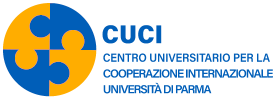Congo
|
The Democratic Republic of Congo is the eleventh largest state in the world and the second largest country in Africa. Its location in the centre of Africa and in a territory rich in raw materials made the country a crucial player in the balance of the entire region even before its independence from Belgium in 1960. After having been a major ally of the United States during the Cold War, Congo - renamed Zaire in 1972 by Mobutu Sese Seko in his campaign for African authenticity - became one of the pivotal countries in the Great Lakes region. The contentious relationship between the central government and regional institutions, which continues to fuel tension in the country, overlapped with the interests of state actors and military formations for access to the country's vast resources and control of territory. In the 1960s, the attempted secession of Katanga was the prelude to the imbalances that later emerged, particularly in the 1990s. Only from 2002-03 has Congo embarked on a process of pacification, with the promulgation in 2006 of a new Constitution with an institutional set-up inspired by French semi-presidentialism. In open contrast to the centralism of the Mobutu era, the new territorial organisation of the country was marked by administrative decentralisation, with the establishment of ten provinces. In spite of this, the greatest criticalities to the stability of the new regime come from the fragmented regional scenario, which in turn fuels internal divisions. The extreme porosity of the borders, the fragility of the central state, and the huge presence of natural resources and precious minerals have favoured the reproduction of endemic conflict situations supported by external actors, in a vicious circle in which causes and consequences sometimes seem indistinguishable. [Enciclopedia Treccani] |
||
|
Active projects in Congo:
|
|

